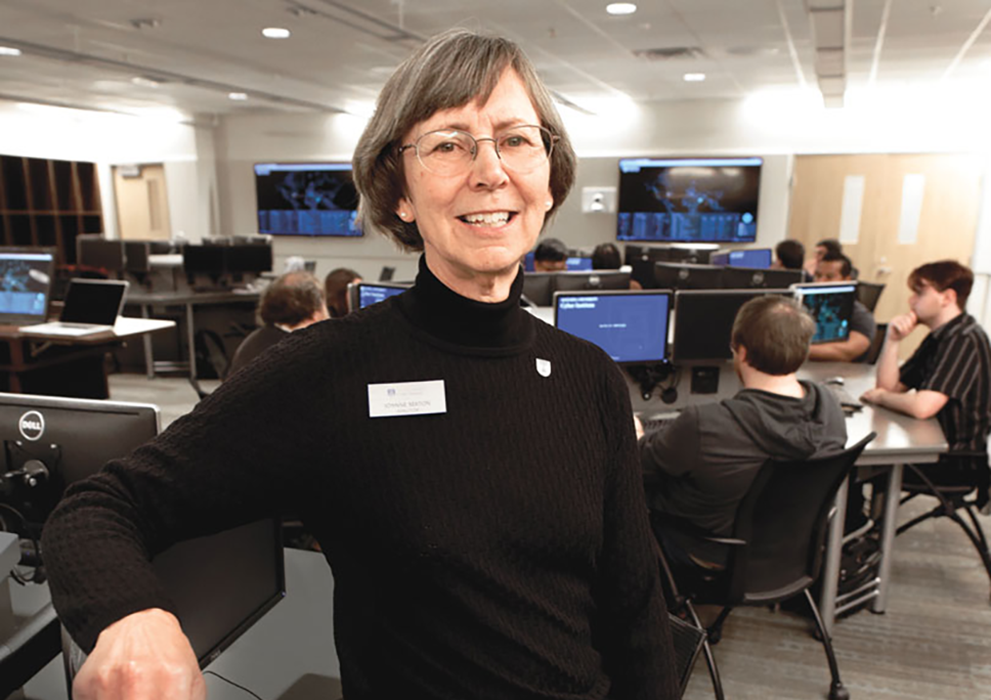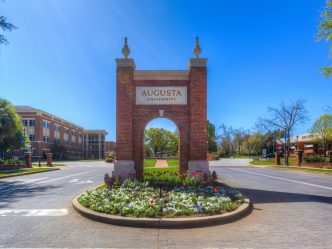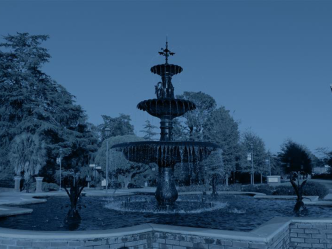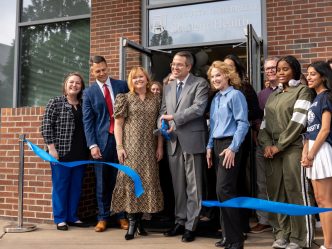“Tip of the spear.” It’s a phrase that Joanne Sexton would use often, according to a close friend. In military terms, it means the first element of a group that leads the way into a difficult and dangerous situation. In the business world, it means the person or group that is first to venture into a new endeavor, also often involving risk.
That’s what Sexton was: a risk-taker but also a visionary, trailblazer, leader and mentor. She had big ideas and dreams that manifested into what is now Augusta University’s School of Computer and Cyber Sciences. Serving as the founding dean of SCCS is just one on her long list of accomplishments – she was dedicated to expanding AU’s footprint in the cyber sphere and, to put it lightly, is responsible for laying the foundation for what the school is today.
Sexton recently passed away, surrounded by loved ones in Horseshoe Bay, Texas, but her memory and legacy will live on, not just through those who knew her but through the impact she made on cyber education throughout her life.
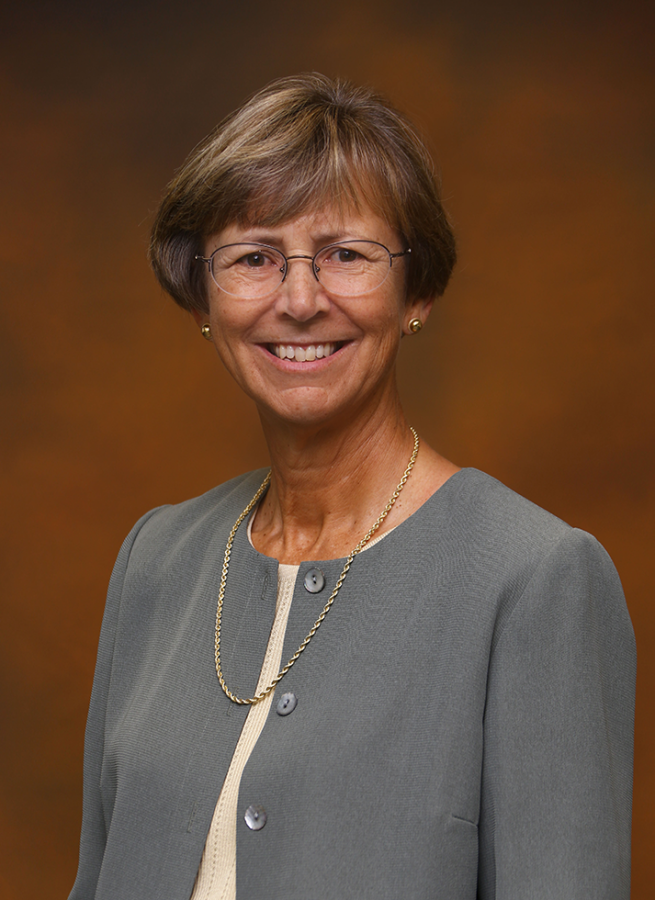
“I think a lot of what she’s accomplished came from that attitude – if you’re going to do anything, make sure you do it the best you can, and I think that’s what brought her to where she is.”
Laura Nagle, sister of the late Joanne Sexton, founding dean of the School of Computer and Cyber Sciences at Augusta University
Early life
Sexton was born in 1953 in Plainfield, New Jersey, as the youngest daughter of Edward and Helen Sexton.
Her older sister, Laura Nagle, recalls Sexton being very hands-on as a child and always wanting to help their father with whatever project he was working on.
“We grew up in a home where there wasn’t anything our dad couldn’t make or build, and she always was his helper, where I was inside, probably learning how to cook,” Nagle said. “So I think a lot of what she’s accomplished came from that attitude – if you’re going to do anything, make sure you do it the best you can, and I think that’s what brought her to where she is.”
Sexton graduated from New Providence High School in New Providence, New Jersey, and attended Rutgers University.
While at Rutgers, she loved being involved in sports and played on the university’s first women’s basketball team. She changed her major multiple times, not feeling fulfilled with a few potential career paths.
“At some point in time, she took an aptitude test with the Navy, which determined that she had a real aptitude for numbers and mechanics, and she could have basically done anything she ever wanted to do. But it was the Navy that told her, ‘This is what you’re going to do,'” Nagle said. “And I think that was a great relief to my parents and Joanne, too. When you can do anything, it’s hard to figure out what it is that you want to do.”
Stepping into a naval career
Sexton joined the U.S. Navy in 1975 and graduated from Rutgers with a bachelor’s degree in health and physical education in 1978.
“They had a real interest in her becoming a naval officer, and one of her professors was able to help her put together enough credits so that she could get a degree,” Nagle said.
Sexton then entered naval officer training and worked as a cryptologist, which is someone who creates and breaks computer codes in order to ensure secure communication. She performed so well in that role that she became the first junior Navy officer to be assigned to work in the Pentagon.
The Navy took Sexton’s career and interest in leadership in information technology to other new heights, allowing her to travel all over the world and acquire two master’s degrees in military applied sciences and computer science from the Naval Postgraduate School in Monterey, California, and the United States Naval War College in Newport, Rhode Island.
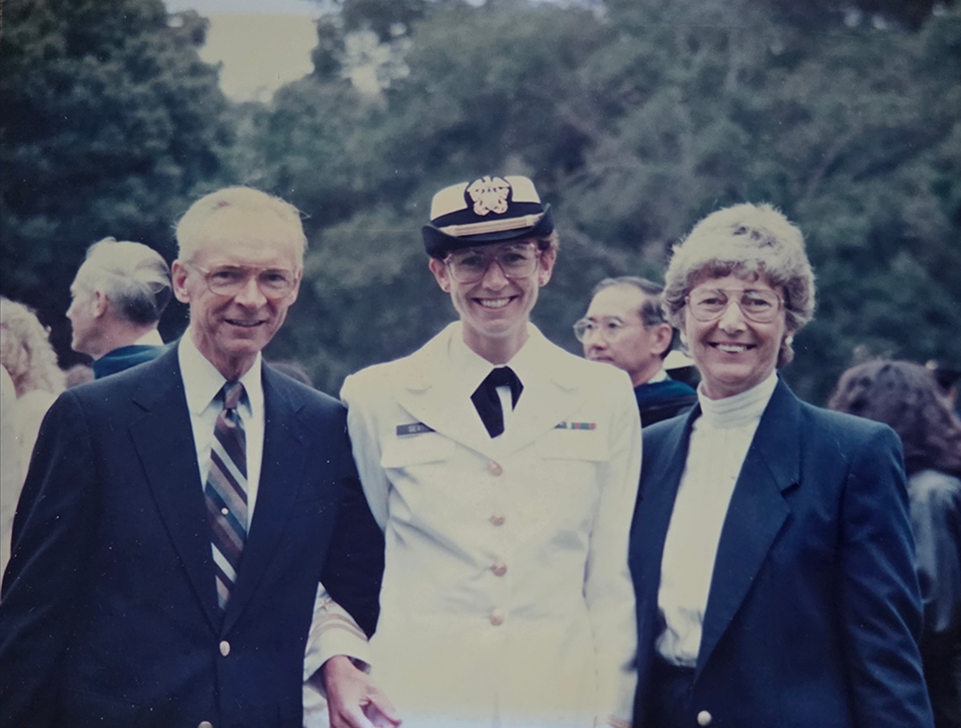
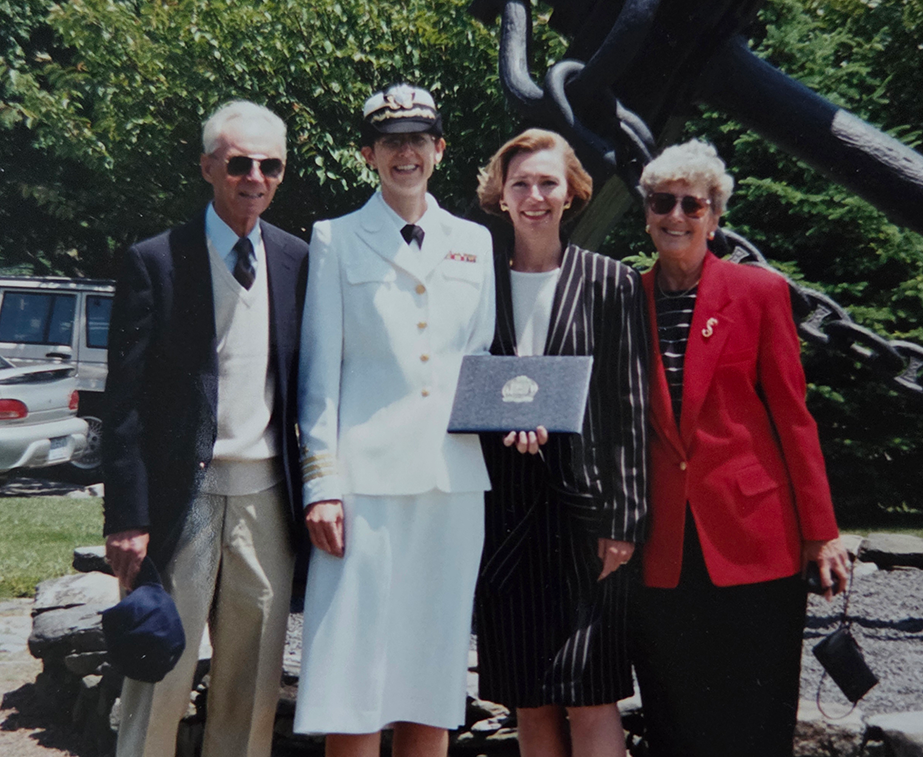
She honed her skills in areas regarding hardware maintenance, software development and support, telecommunications services, operations management, information security and more.
She worked her way up the ladder and became a naval commander before establishing the joint Navy Information Operations Command Georgia at Fort Gordon in 1995.
“It was kind of an experiment, and at the time it was a combination of Navy and Army command with rich importance in cybersecurity,” Nagle said.
Expanding cybersecurity operations and education
Sexton served as the first female commander of the NIOC GA for four years before retiring from the Navy in 1999.
With more than 20 years of information technology and cybersecurity experience in the military, she joined the higher education field as an assistant professor at Augusta University’s legacy institution, Augusta State University, teaching coding and computer science.
At the end of 2013, the U.S. Army announced the move of its U.S. Army Cyber Command to Fort Gordon, raising the question of the impact it would have on the Augusta area and AU, which, at the time, had no cybersecurity programs.
“‘She’s a retired Navy commander; she has a cybersecurity background. She’d be perfect to take on this effort.’”
Karen Ribble quoting Carol Rychly, PhD, on Joanne Sexton
Karen Ribble, now retired, served as a project manager for AU’s Division of Institutional Effectiveness at that time. She was tasked with facilitating the university’s first Cyber Georgia Summit to host cyber leaders from Fort Gordon, the government and other local industries to discuss cyber threats and the role of education in developing a cyber workforce.
“After the event, I was on a call with a small group of AU leadership, and they said, ‘We want to offer cybersecurity programs on our campus. Who are we going to get to lead it?’ And Dr. Rychly, at the time, was the vice president of Academic and Faculty Affairs, and she said, ‘I think we’ve got the perfect candidate to lead this effort in one of our assistant professors – Joanne Sexton of computer science. She’s a retired Navy commander; she has a cybersecurity background. She’d be perfect to take on this effort,’” Ribble said.
With a “tip of the spear” mindset, Sexton agreed to lead the charge of creating AU’s Cyber Institute in 2015, making her the director and Ribble her project manager and right-hand woman.
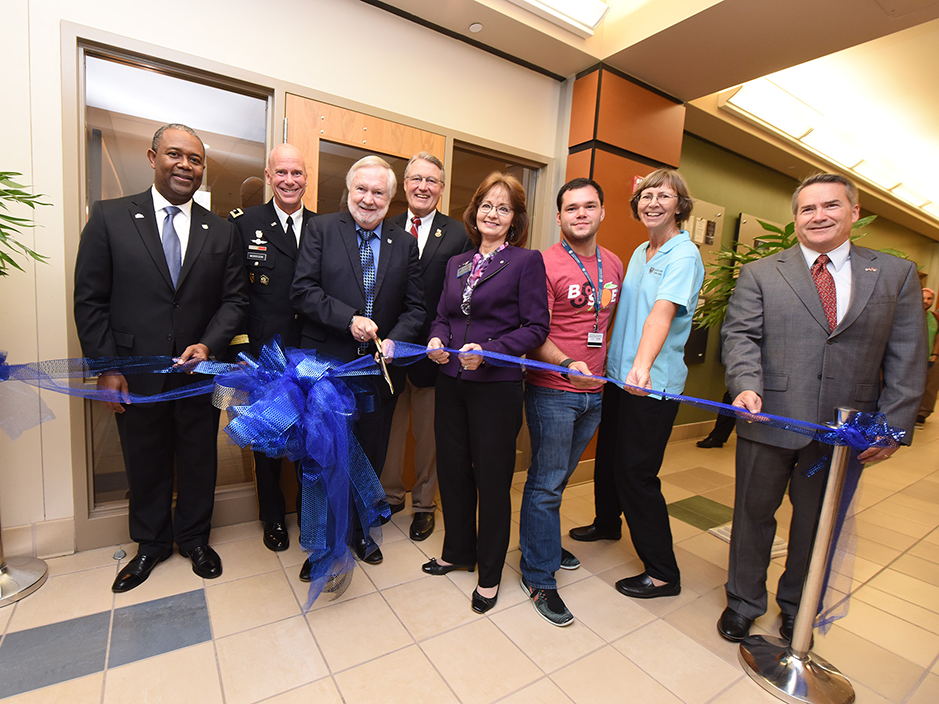
“What’s funny is I already had a job; I managed other campus projects. This was just one of them, and I worked regularly with her. She and I got along really great. One day she said, ‘I think you should be part of this institute.’ And I kind of brushed it off at first, and I thought, ‘I’m happy with what I’m doing right now, but let me think about it,’” Ribble said. “Then I came back to her and said, ‘I think I’d be interested if I could grow in the position and gain leadership and supervisory skills.’ And so she assigned me as the assistant director to her – I handled all the business administrative functions, and she focused on building and hiring for the academic programs.”
Establishing the Cyber Institute at AU
Sexton wanted the institute to be focused first on developing a cybersecurity certificate — expanding cybersecurity workforce development, research, education and outreach — all of which were required in order to be designated a National Security Agency Center of Academic Excellence in Cyber Defense Education, one of the main goals of the institute.
In order to do this, they needed cybersecurity faculty. Michael Nowatkowski, PhD, the current director of the Cyber Institute and professor at AU, was one of Sexton’s hires.

He was on active duty at Fort Gordon when she asked him to be a part-time instructor during the spring 2016 semester. He accepted, and when he retired from the Army eight months later, she offered him a full-time position as an associate professor.
“I’ve been here ever since,” he said. “She was always very helpful and provided assistance learning all the systems here, as well as introducing me to grant opportunities.”
Nowatkowski credits Sexton with being responsible for establishing much of the framework that has afforded SCCS the accreditations it has today. He said she submitted a grant application for what was called the Information Assurance Scholarship Program from the Department of Defense, which has allowed students to receive the scholarship every year since. She also wrote the first proposal for the National Science Foundation Scholarship for Service grant that the school was awarded in 2021.
In 2016, Augusta University became one of the first schools in the state of Georgia to have its undergraduate cybersecurity program CAE-CD designated under Sexton’s leadership.
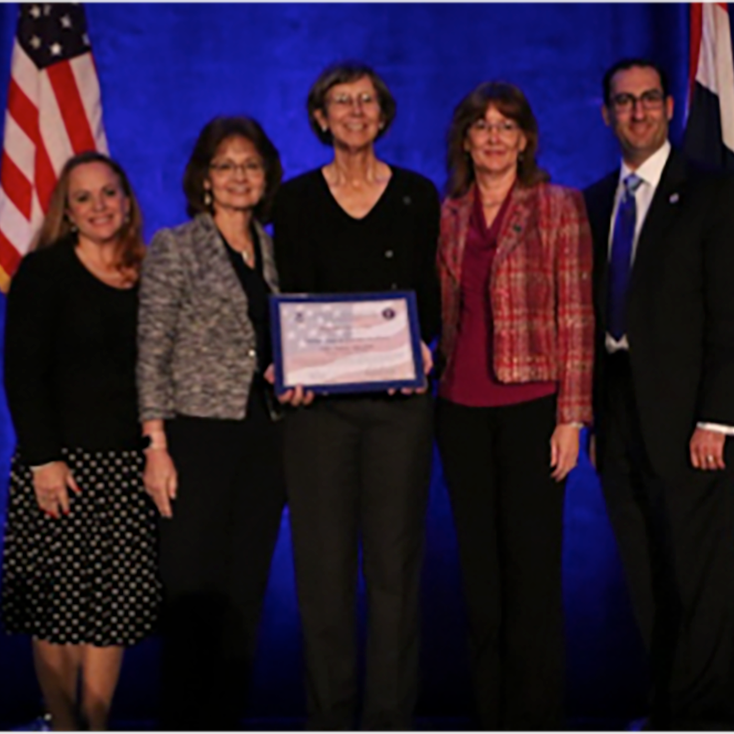
At the end of 2024, SCCS earned its second designation from the NSA as a Center of Academic Excellence in Cyber Operations – making AU the only institution in Georgia with both cyber defense and cyber operations designations.
“She was also very good at building teams and trying to really capitalize on people’s strengths, so she would put them in the position where they would be able to do what they were best at,” he said. “I wouldn’t be working here if it wasn’t for Joanne.”
He also thinks that if it wasn’t for Sexton’s determination to expand cybersecurity education, the Georgia Cyber Innovation and Training Center probably wouldn’t be here either.
“The success of our students and the number of students who are interested in our cyber programs, I think that’s due primarily to Joanne’s vision,” Nowatkowski said.
In the early years of getting the Cyber Institute up and running, Sexton was still teaching full-time and was passionate about evolving cybersecurity education in the K-12 pipeline, working closely with the Alliance for Cybersecurity Education, a consortium developed by AU, Fort Gordon, local school systems and prominent institutions in the CSRA to introduce cyber curriculum to local high schools. She also started the first NSA GenCyber camps in Augusta for Georgia and South Carolina high school students.
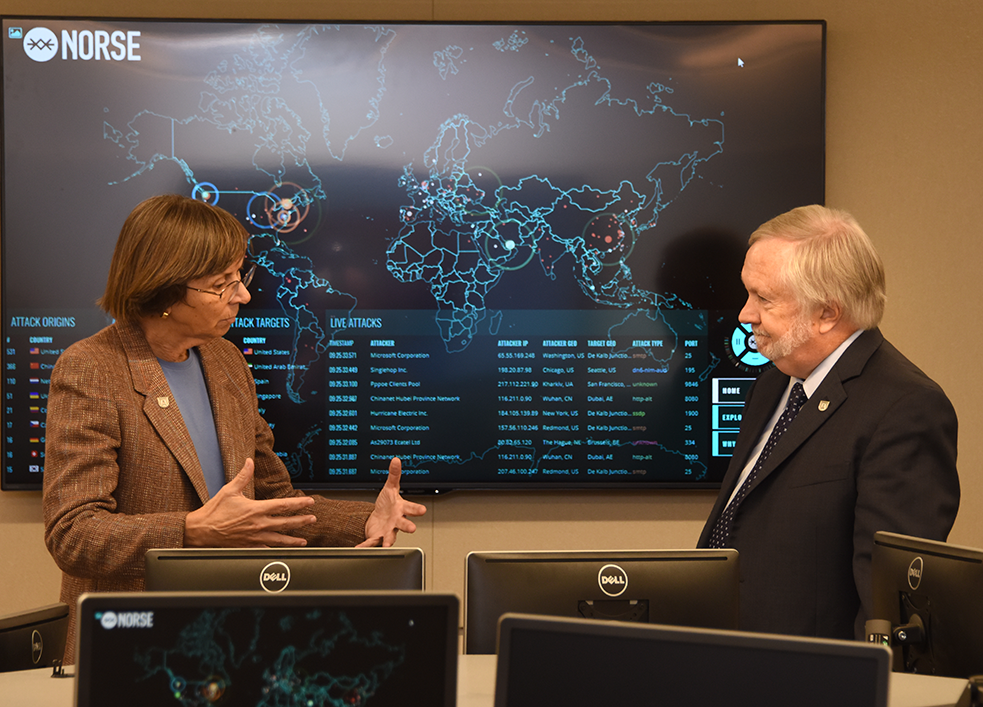
In addition, she helped establish and run BSidesAugusta, an organization that builds events for information security community members.
Doug Burks, the founder and CEO of Security Onion Solutions and a former student of Sexton’s, worked with her on the project.
“I first met Joanne around the year 2000 – I took several classes from her, and she quickly became one of my favorite professors. She taught in a very practical manner, which bridged the gap between academic theory and real-world application,” Burks said. “She was involved in and provided support for community groups like the CSRA Linux Users Group and the Greater Augusta ISSA.
“In 2013, we decided to start the BSidesAugusta cybersecurity conference, and she made sure the university provided space for us,” he continued. “That conference has helped make a name for the university and the city of Augusta as it attracts hundreds of attendees every single year. Joanne had an incredible career with many amazing accomplishments but, at the same time, remained humble. I’m privileged to have known her as a teacher, mentor and friend.”
After less than four years in her role as Cyber Institute director, Augusta University’s School of Computer and Cyber Sciences was created, and Sexton was named founding dean in 2017.
“She really was at the forefront of everything cyber in the Augusta community. She was going through the process of getting approval of the budget, and not only that, she had to get approval through the Board of Regents for us to offer a new Bachelor of Science in Cybersecurity degree program,” Ribble said.
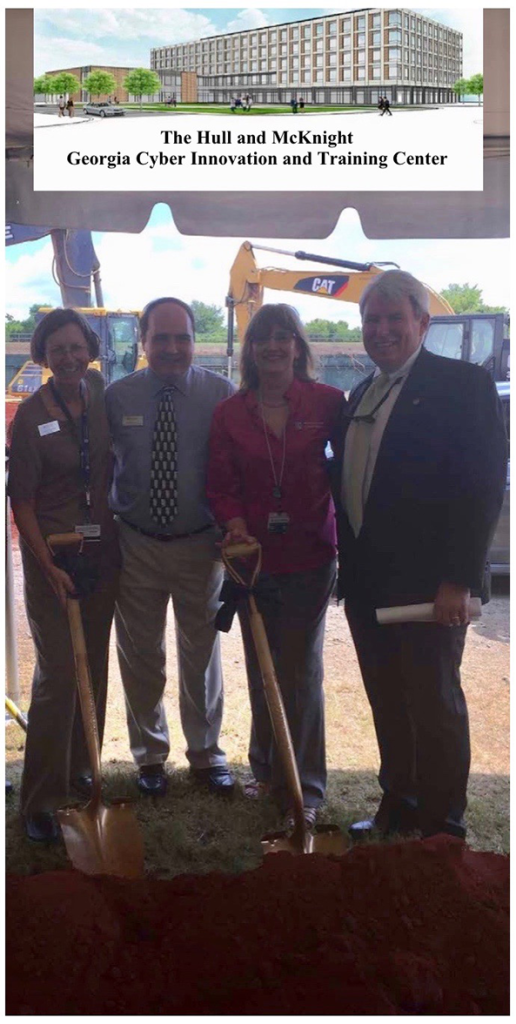
Sexton transitioned from her role as dean to a member of the faculty in 2018, and even though she officially retired in 2020, she continued to teach part-time at SCCS in the Department of Computer and Cyber Sciences with a dual appointment in the College of Education and Human Development‘s Department of Teaching and Leading.
“Joanne was a dear friend and a wonderful colleague. Her leadership in founding the Cyber Institute, establishing cybersecurity programs at Augusta University and laying the groundwork for the School of Computer and Cyber Sciences cannot be overstated,” said Alexander Schwarzmann, PhD, the current dean of SCCS. “Joanne’s legacy lives on in our school, the programs she shaped and the many students and colleagues she lifted along the way.”
Life after retirement
While she was growing up in New Jersey, Sexton and her family often took ski trips during the winter months. Along with golf, a hobby and passion she carried with her throughout her adult life, Ribble recalls how she immediately went skiing and traveling following her retirement.


“That was what she wanted to do, and she earned it,” she said. “She and I still kept our friendship, but it grew after I was no longer reporting to her, and she was also a mentor to me.”
That growing friendship turned into a fun trip between old colleagues.
“We went to Alaska and had a wonderful time,” Ribble said. “I didn’t know she had never fished – my husband and I are fishermen, and now I have a picture of her catching a salmon. We were on a fishing boat catching them, and she caught one and was thrilled. Joanne’s favorite memory of that trip was the dog sled and glacier hike. It was just a great experience.”
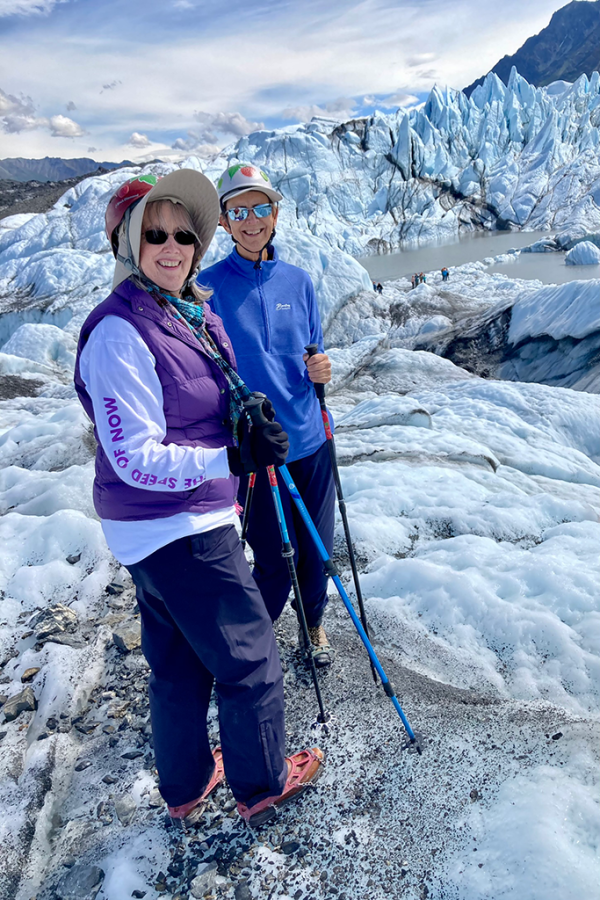
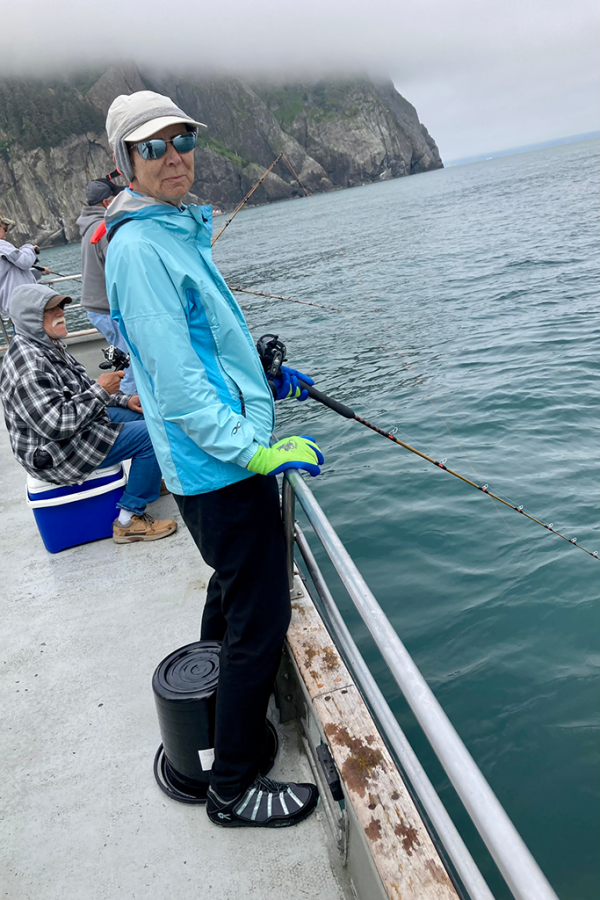
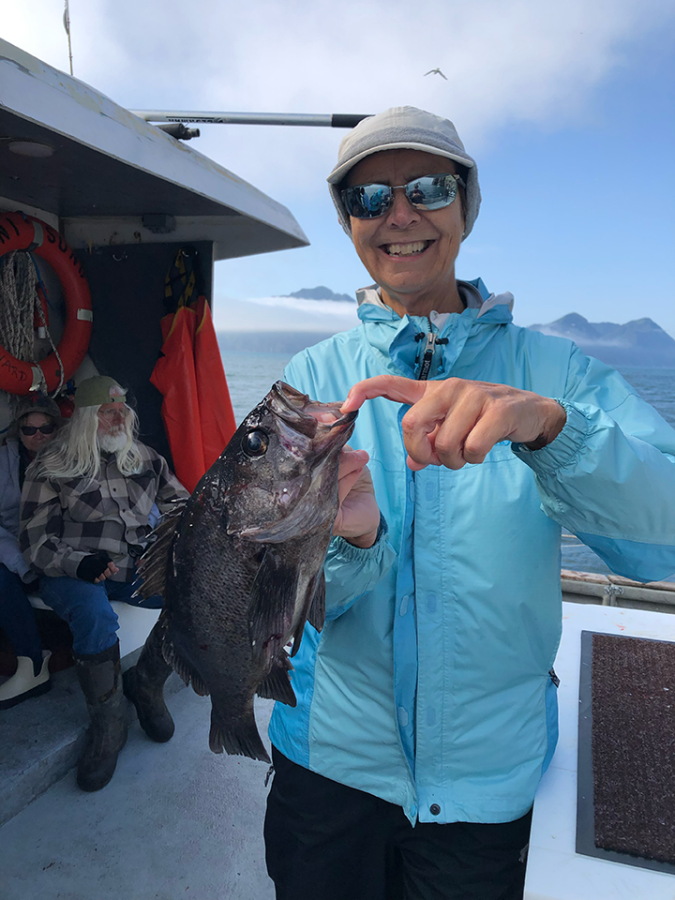
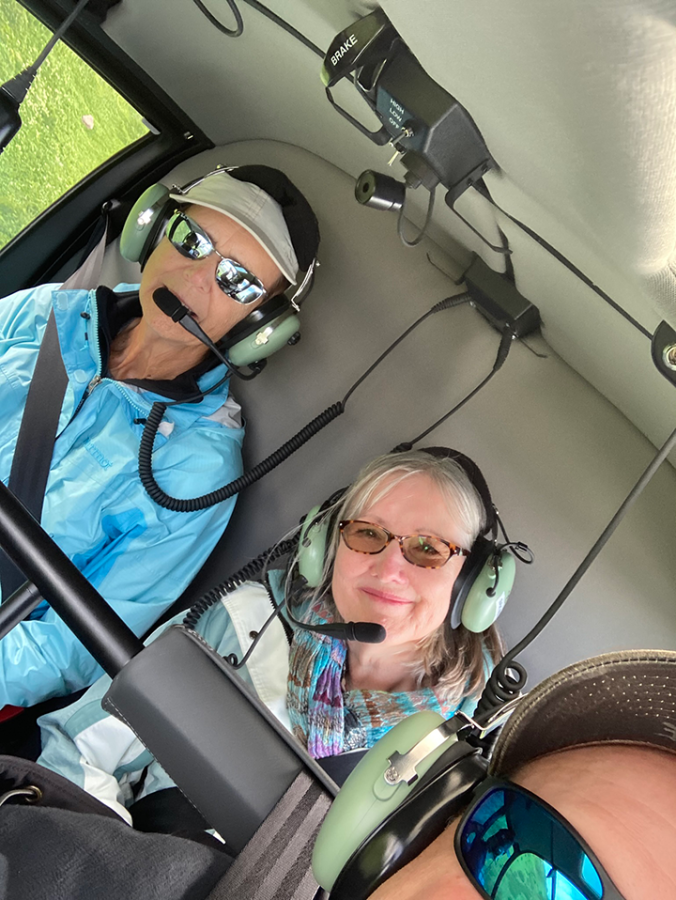
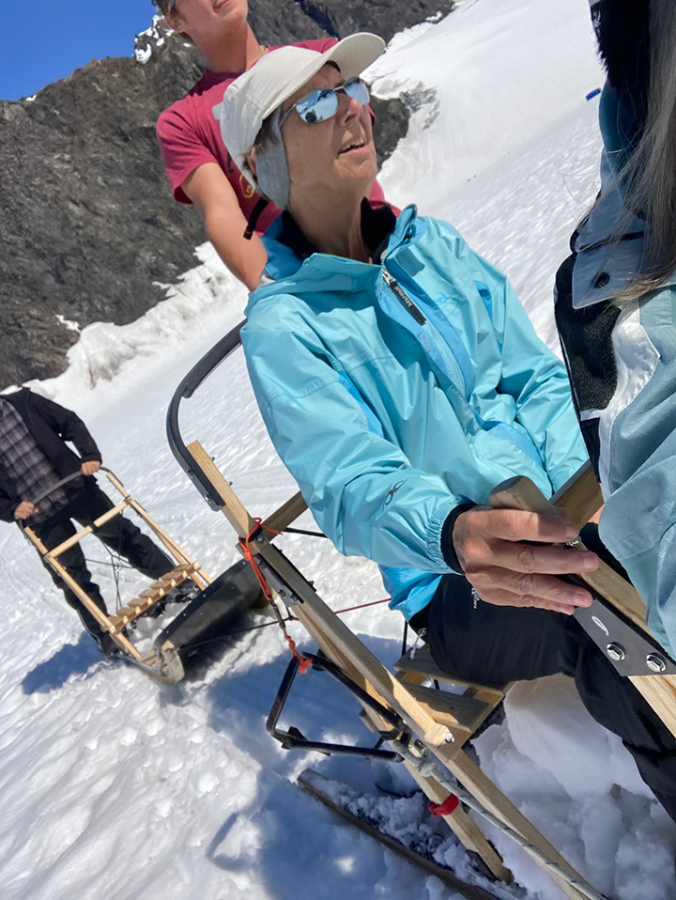
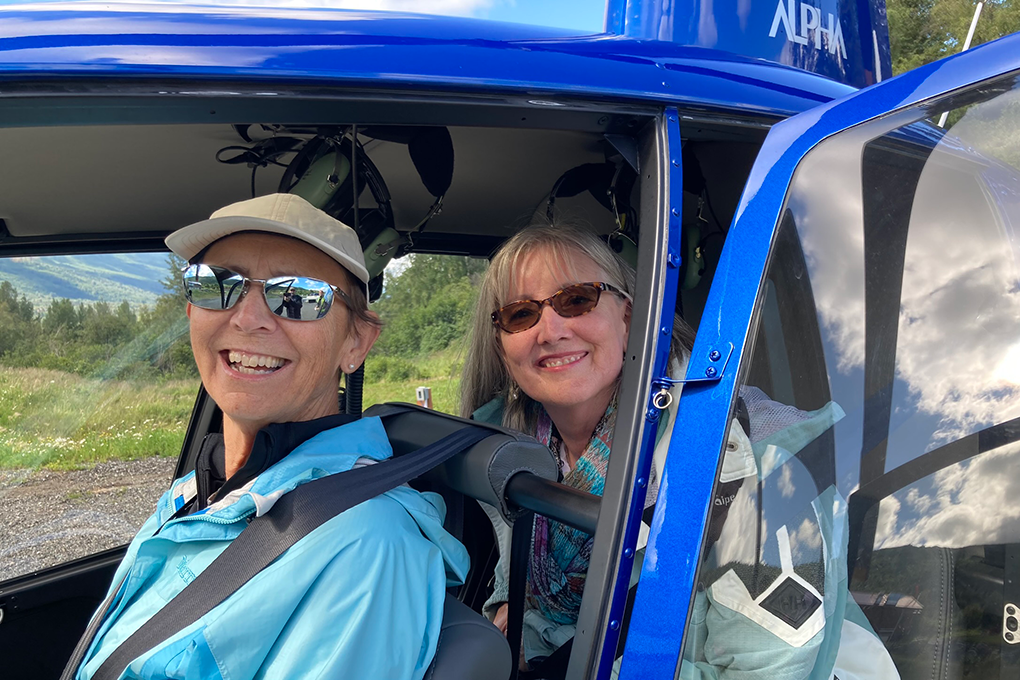
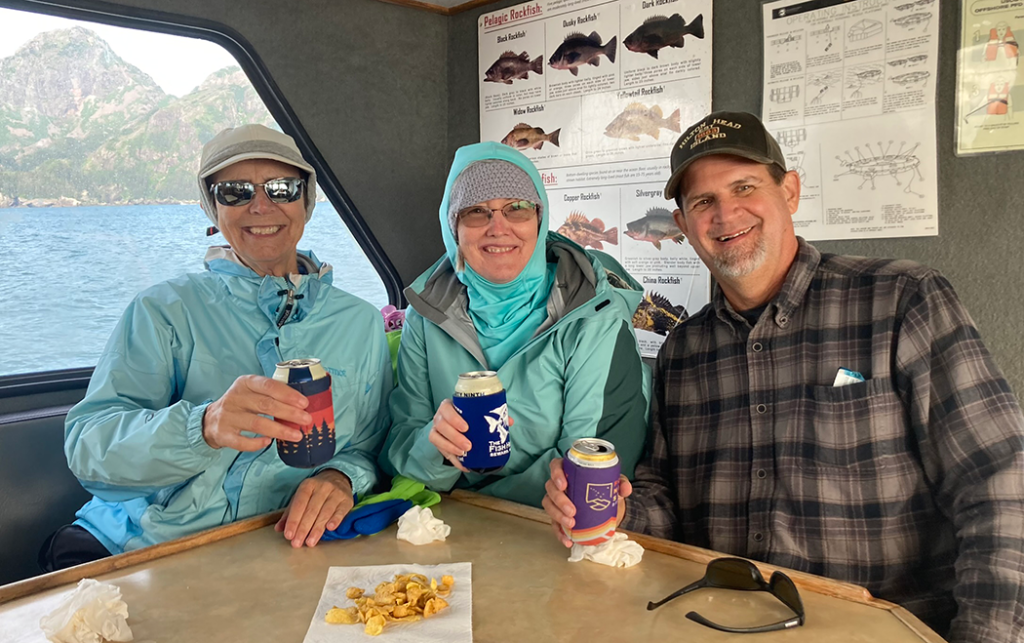
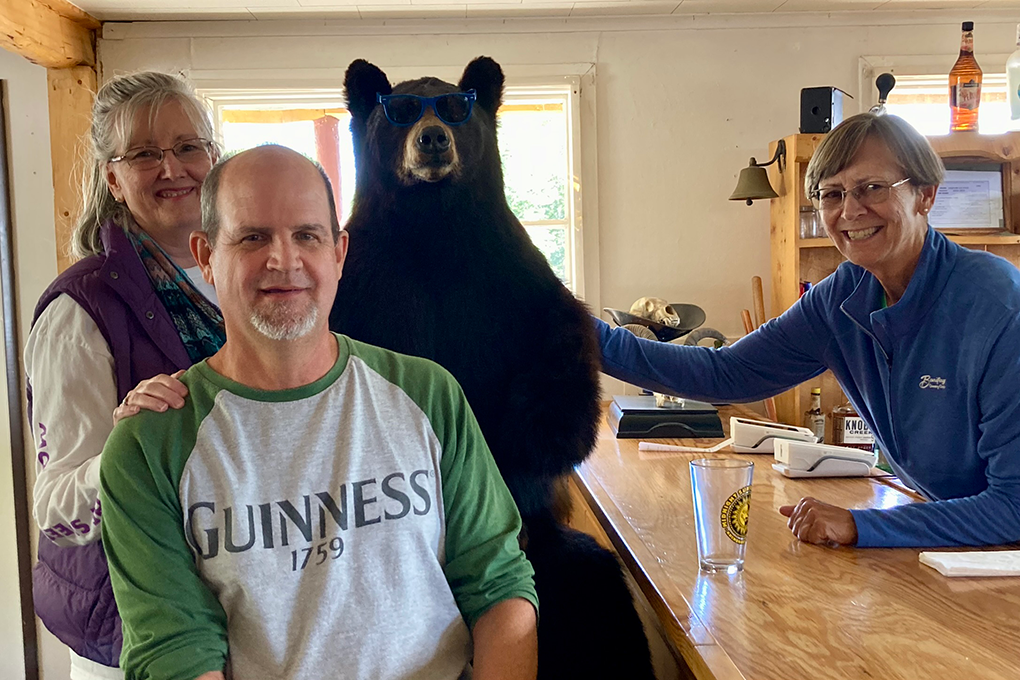
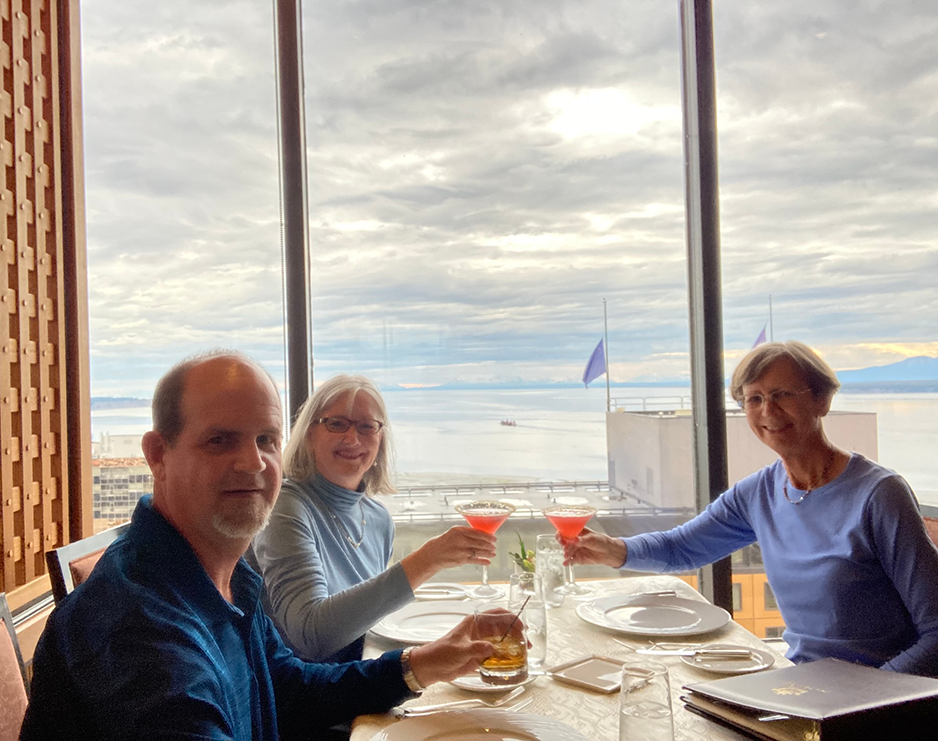

Sexton leaves behind a legacy of not only cyber excellence at Augusta University and the surrounding area but also of being a source of camaraderie and wisdom for those who knew her and worked closely with her.
Many of the people she impacted wish for her memory and accomplishments to be honored, celebrated and built upon at AU for years into the future. A celebration of life will be held on Nov. 4, 2025, from 3 to 7 p.m. at the Foundry at Rae’s Creek, 250 Boy Scout Road, Augusta. A military burial will be held at a later date.
 Augusta University
Augusta University
